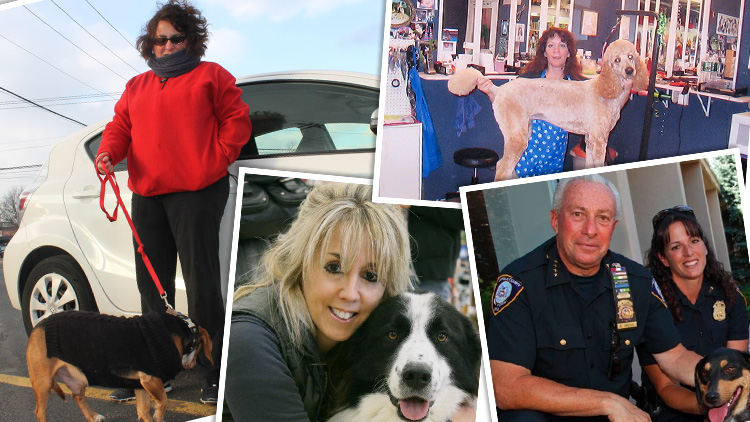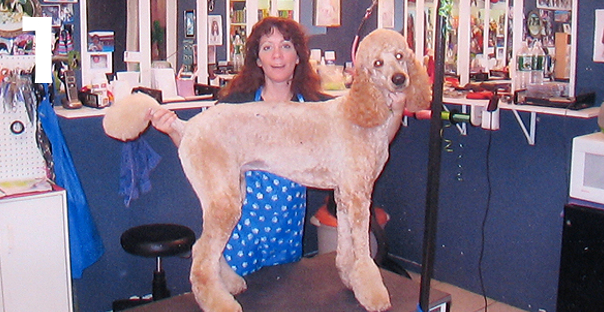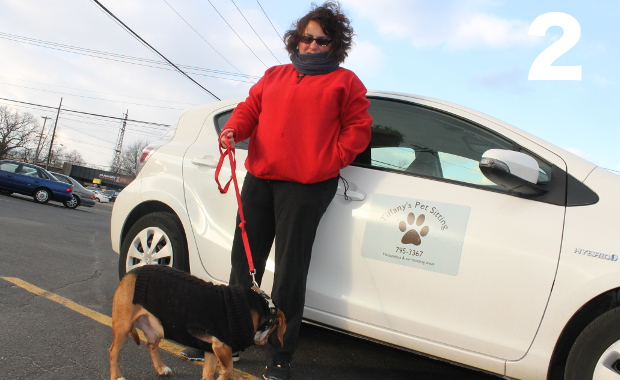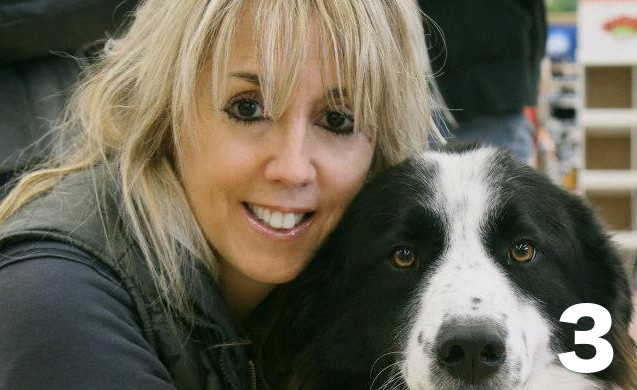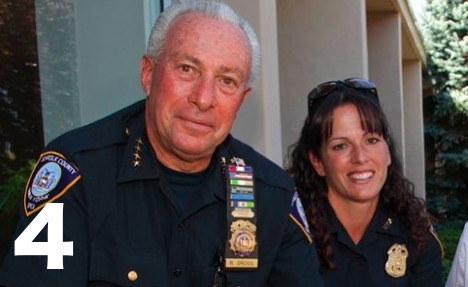If doing what one loves for a living were a contest, Olimpia Anzalone would be a top contender. For the past 13 years, she’s trimmed, styled, washed and dried, on average, more than a dozen doggies, daily, at her Northport shop Olimpia’s Dog Grooming Parlor. “These guys are my other family of animals that I’ve known through the years since they were puppies,” Anzalone—who has dogs, cats and birds at home—says, while drying a fluffy, freshly groomed, white Samoyed. “I’m happy to come to work every day.” She also grooms cats and sells pet clothing, costumes, supplies and even freshly baked food for animals. Anzalone prides herself on helping clients understand why sometimes their dogs need a “smoothie”—having their coat shaved to get rid of badly knotted fur—and explaining how to keep their pets well-coifed between monthly appointments, which run from 90 minutes to three hours. “It’s basically like a child going to the dentist for the first time sometimes with dogs, so you got to put on good face and make sure that it’s a happy atmosphere,” she says. “After they get to know us, they love us. The dogs come running in!”
THE WALKER
For pet sitters such as Tiffany Elliot, the dog days are every day. After her last job cut her hours two years ago, she founded Tiffany’s Pet Sitting & Dog Walking, serving her hometown of Massapequa and surrounding areas—and business is howling. “I’ll take care of ’em like my own,” says Elliot, jingling a janitor-esque keychain of clients’ house keys while walking Blueberry, her sweater-wearing Beagle. “It’s a lot of fun, I’ve always liked dogs.” Unlike city dog walkers who juggle 10 leashes, Elliot visits one pup at a time, and sometimes a cat, rabbit or lizard, too. Most clients are commuters who work in the city and can’t take Fido for a walk during the day, but she sees a spike during summer and school vacations when families go away. Conscious of canine loneliness, well-behaved client-dogs spend time in Elliot’s home, as long as they pass the personality test. It’s not all petting, treats and fetch, either. She’s pet-sitter insured, trained in canine CPR and has references to vouch for her trustworthiness. The fresh air, exercise and generally easy-going company proved unplanned perks. “This is the type of job where even if I’m sick…they don’t care what you look like.”
THE RESCUER
Matching families with a new four-legged furry friend is all in a day’s work for Lisa LaValle, a volunteer with Last Chance Animal Rescue, a Southampton-based nonprofit animal adoption agency. When she’s not fostering dogs that need to be socialized or coordinating child volunteers as heads of the group’s Rescue Rangers Program, LaValle is shuttling between PetSmart and Petco stores that host adoption events each weekend on eastern Long Island. “We’re just a small group of dedicated volunteers trying to make a difference,” says LaValle, whose daughter also works with the group. Since it was established in 2008, Last Chance has found homes for more than 6,000 dogs and cats rescued from being euthanized in rural shelters. Each animal is vaccinated and spayed or neutered before adoption. Applicants are also screened first. It can be heart-wrenching work at times. “Some come to us broken and scared and some come happy and healthy,” LaValle says, recalling a Puggle—a beagle-pug crossbreed—named BossMan, that she wrapped in an Islanders shirt because he was shaking “like a leaf” before finding a new home. But the good days outweigh the bad. “I feel like we put families together,” she says.
After responding to countless cases throughout the past 30 years, Roy Gross, chief of the Suffolk County SPCA says that dogs are the most frequent subjects of abuse, neglect and abandonment investigations, followed by cats and horses. The worst of the roughly 3,000 cases annually was a dog so emaciated it couldn’t stand when officers found the pup in a foreclosed home. “This dog stood up and fell right over it was so weak,” he recalls. Once the animal was nursed back to health, an officer adopted him and named him Justin, “Because he was found just in time,” Gross adds. Justin’s Law, a Suffolk law that established the nation’s first animal abuse registry four years ago—it still hasn’t been set up, however—was named after the mutt. Gross, who spent two months at Ground Zero with his therapy dog, Cody, assisting search-and-rescue canines, notes that his officers can’t simply seize animals from homes on a whim—unless blatant abuse is caught in the act. He also reminds people that the nonprofit agency is funded by private donations and relies on anonymous tips via 631-382-SPCA. “An animal cannot pick up a phone and call us,” he says. “We are the voice of the animals that can’t speak for themselves.”



